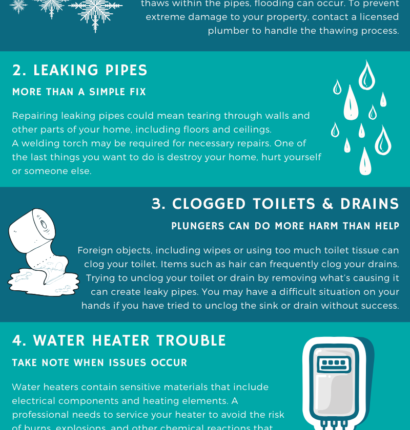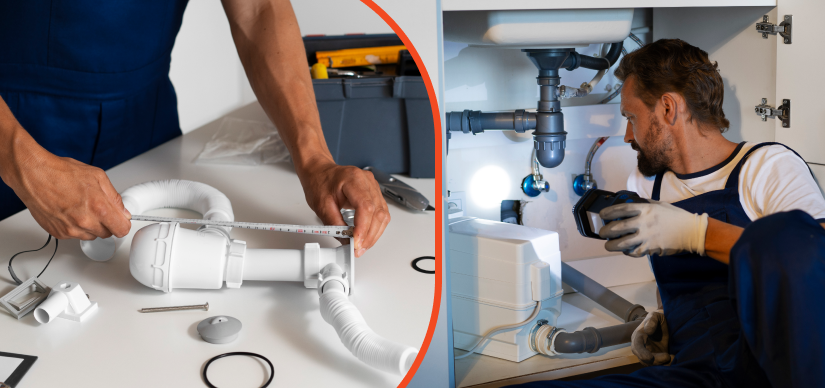All Categories
Featured
[/image][=video]
[/video]
Nevertheless, prior to you rush to call a plumber or make some poor DIY choice, you could wish to take an appearance at these pipes keys that can save you time and money. It's vital to recognize where you water turned off valve remains in your home, as this can conserve you from even more severe damages when pipes concerns take place.
As soon as whatever is transformed off, take an appearance at your water meter. A continued motion on your water meter when all water resources are transformed off is a clear red flag that needs prompt focus.
Nonetheless, slow drains are frequently a very early warning indicator of a bigger problem. It might suggest a blockage planned, a problem with your sewage system line, or also tree origins penetrating your pipelines. Rather than waiting on the drain to become totally blocked, take activity as quickly as you see a stagnation.

If these do not work, it might be time to call in an expert. Neglecting the problem could result in more serious and expensive issues down the line. Recognizing where your major water shutoff valve is can save you from potential water damages in case of a major leakage or pipes catastrophe.
Is Diy Plumbing Safe?
Ensure every household adult understands where the shutoff valve is and how to utilize it. In the event of a severe leakage, quickly shutting off your home's water can reduce damage and offer you assurance while you wait for a plumbing to show up. It's a preferred concept that chemical drain cleansers are the supreme solution for clogged drains a concept that couldn't be better from the reality.
The chemicals can wear away the internal lining of the pipelines, leading to weakened frameworks, leaks, and even pipeline ruptureds. They can leak into groundwater and pollute it, presenting threats to regional ecosystems.
These tools can effectively clear obstructions without causing any type of damage to your pipelines. If these techniques don't work, do not be reluctant to call a professional. Remember that avoidance is constantly much better than treatment. Avoid pouring grease, oil, or any type of strong waste down your drains pipes, as they can strengthen and cause obstructions.

However, over-tightening can result in lots of troubles, including removed screws and broken bolts, leading to leaks and even water damage. This common mistake in do it yourself plumbing projects can turn a minor fixing into an expensive undertaking. Rather, aim for a tight fit. The fitting must be tight sufficient to stop leakages yet not so tight that it places unnecessary stress on the equipment.
Is Diy Plumbing Safe?
Plumbing professional's tape, or Teflon or thread seal tape, is a must-have device for every house owner. It produces watertight seals at pipe strings, avoiding leakages at joints and connections.

Before attaching any type of installations, take a moment to cover a few layers of plumbing's tape around the threads in a clockwise instructions. Make certain the tape covers all the strings and is wrapped firmly. This basic yet essential step can conserve you from handling aggravating leakages down the line.
Remember that for bigger concerns, professional aid is constantly recommended. To prevent this from taking place, take into consideration mounting pipeline insulation.
And also, during colder months, pipeline insulation can aid avoid your pipes from freezing and bursting a scenario that can result in costly repair work. When it comes to sealing fixtures like taps, many do it yourself fanatics instinctively get to for a plumbing technician's putty. However there's an option that might serve you better silicone caulk.
Should I Do My Own Plumbing?
This flexibility enables it to suit mild shifts or activities without damaging the seal, offering a more durable and durable remedy. Just bear in mind to allow the caulk treatment totally according to the producer's guidelines before subjecting it to water to make sure the most effective results. "Doping" in pipes refers to using pipe dope, or pipe joint compound, to the threads of pipes connections prior to they're screwed together.
Latest Posts
The Definitive Guide to Identity Protection Tools
Not known Incorrect Statements About Identity Protection Tools
9 Simple Techniques For Identity Protection Tools